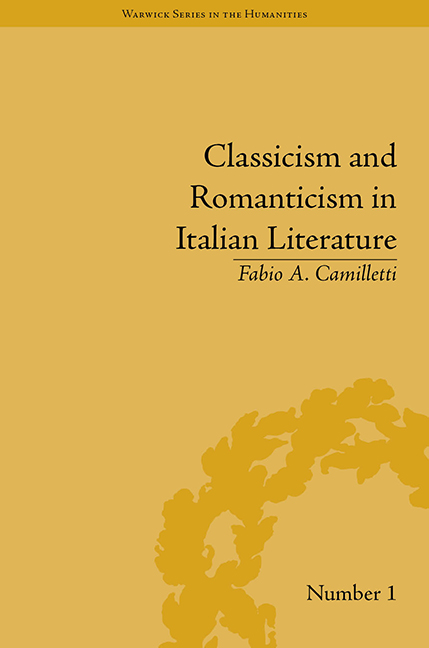1 - Romanticism, Classicism and Leopardi's Discourse
Summary
Idle Enquiries
In his book on Romantic Europe and the Ghost of Italy, Joseph Luzzi discusses the long-debated problem of the actual existence of an Italian Romanticism, trying to understand the reasons for the relatively scarce attention paid to the Italian early nineteenth century by literary criticism outside of Italy. As Luzzi summarizes, traditional explanations of Italian Romanticism's ‘ubiquity in Italian scholarship yet … invisibility in foreign criticism’ have primarily been three:
First, Italian authors of the early nineteenth century continued to emulate the same Greco-Roman classical culture that the rest of Romantic Europe had begun to regard with suspicion. Second, Italian Romanticism promoted a pious Catholicism that was out of step with the more rational Protestant cultures of northern Europe. Third, Italian Romantic authors failed to transcend the chaos and contingencies of Italian history and politics to address international currents of thought.
All of these reasons are particularly weak, as Luzzi himself clearly demonstrates by challenging them one by one. Though it is true that the Italian Romantics’ understanding of foreign trends was in many ways a limited one, neither the Greco-Roman imaginary nor the fascination of Catholicism were forbidden or considered suspicious topics for that European scene that we currently label as ‘Romantic’. More correctly, Luzzi argues, the problem of Italian Romanticism should be addressed by paying attention to other issues, the most important of which is ‘the diffusion of Italy as a premodern culture in the Romantic foreign imaginary’, determining, as we have seen in the introduction, a ‘Meridionalist’ and exotic perception that still haunts contemporary criticism to a great extent.
- Type
- Chapter
- Information
- Classicism and Romanticism in Italian LiteratureLeopardi's Discourse on Romantic Poetry, pp. 21 - 58Publisher: Pickering & ChattoFirst published in: 2014



